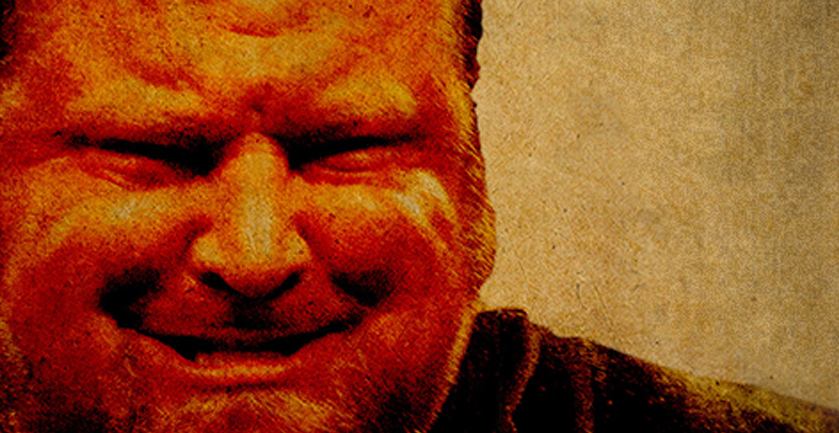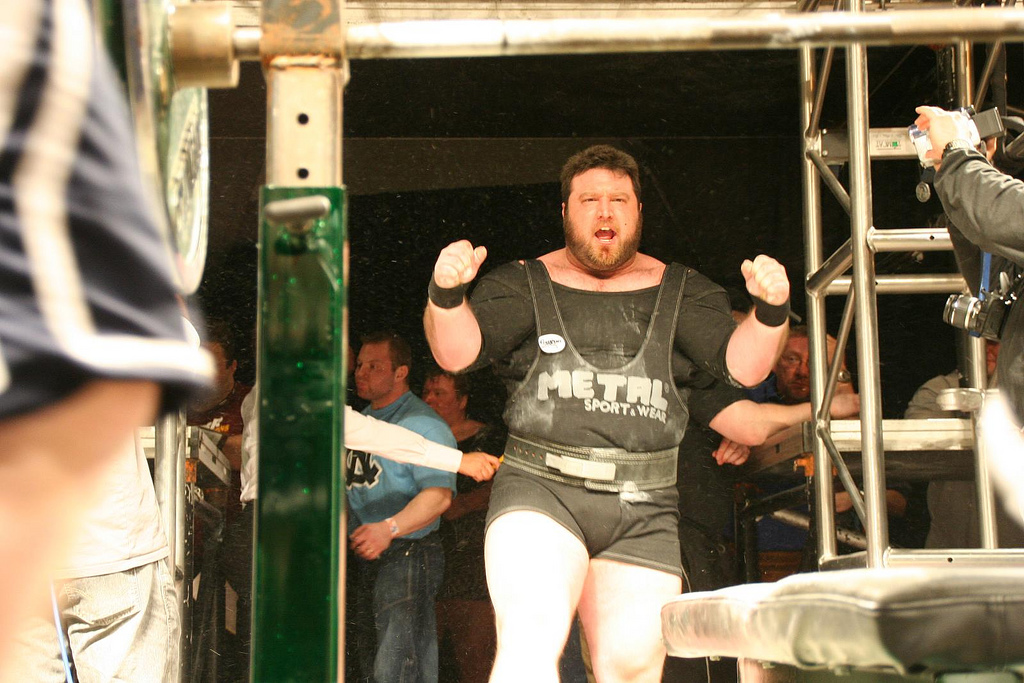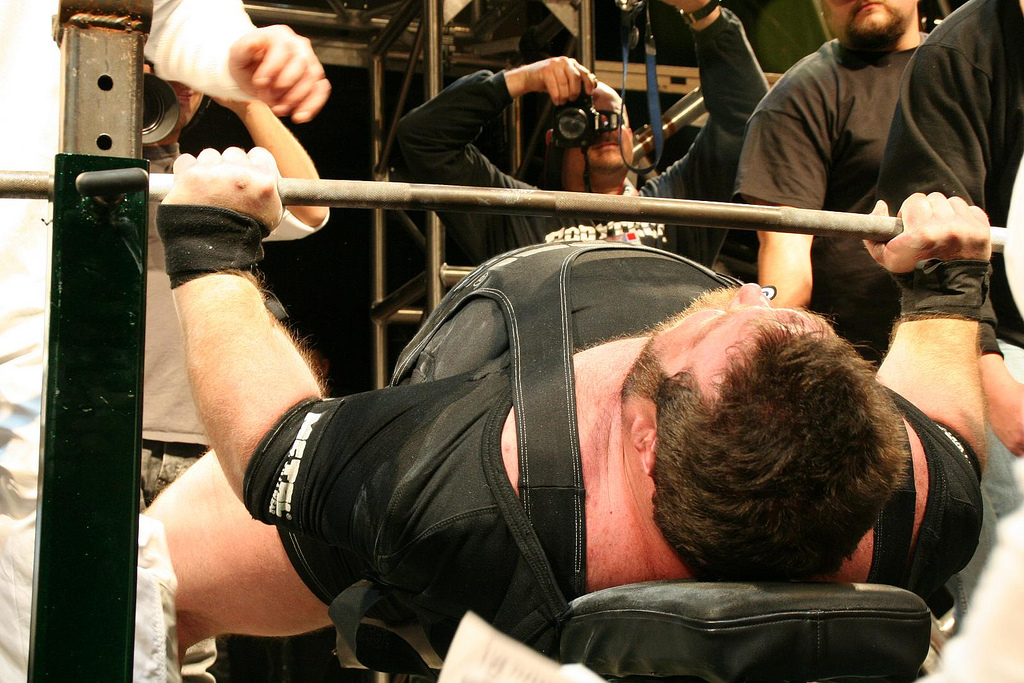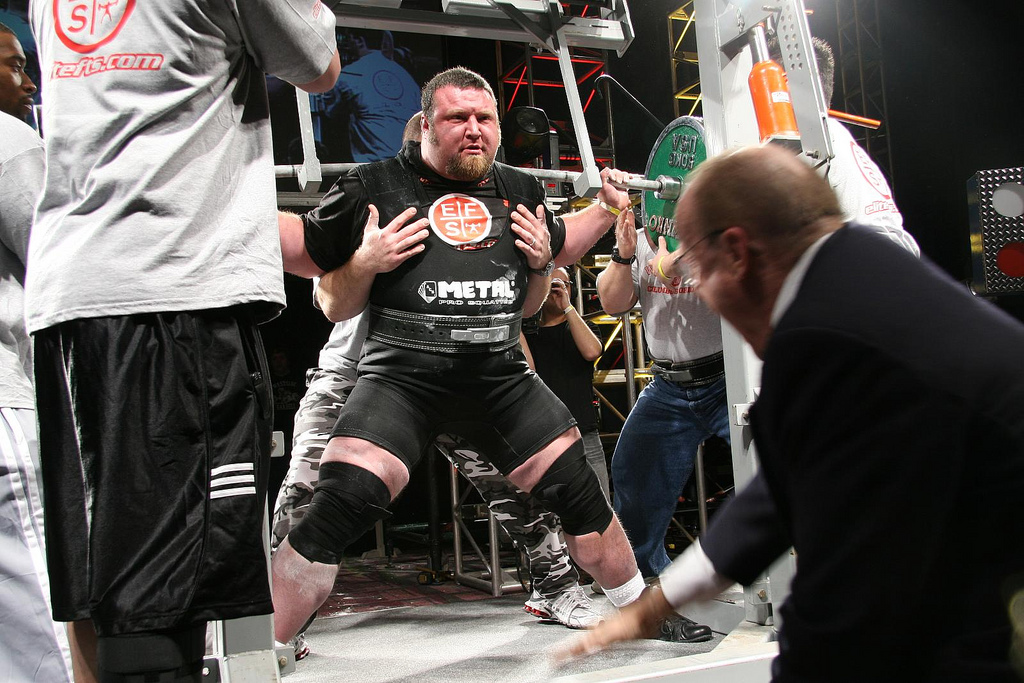
I see powerlifting as a science, and I see myself as a scientist. So I'm a scientist who studies powerlifting. Dictionary.com defines science as "knowledge, as of facts or principles; knowledge gained by systematic study." I like this definition because it very simply explains how I've always approached powerlifting. This type of approach was one of the main reasons why I was so successful in powerlifting. I never really thought of it as being scientific at the time. I just wanted to get stronger.
During a text conversation with a friend a few days ago, I realized how scientifically I have approached powerlifting. I sent a text saying, "I'm going to try this and see what happens!" My friend replied, "I like how you make yourself an experiment!" This sparked a different angle of thought and I realized how I see powerlifting as a science and how my body is an experiment. Writing an article seemed like a good way to explore this concept further.
Looking back, I didn't always approach lifting from a scientific angle. I started lifting in high school and always tried to get stronger, but honestly, I realize now that I was just a follower. I read what information I could find and I tried things that I read about. There really wasn't a whole lot of thought behind any of it, and I never really asked questions about what I read. I never really asked myself if it made sense. I never really thought about whether or not that person actually did what he was writing about or if there was any evidence that this could help make me stronger. I basically followed blindly.
When I got to college, I had a strength coach for the first time. My strength jumped up some more, but again, I was just basically doing what he told me without much thought to it. I had to stop throwing after only two years because of my chronic compartment syndrome, but I was able to keep lifting. Until I was 27, it pretty much stayed the same way. I just followed things that I read about or things I had been told by my former coach. I always trained to get stronger, and I guess I did OK because I totaled 1700 pounds raw and drug-free in my first three-lift meet. There wasn't any science or much thought behind it. I was just willing to listen and more than willing to do the work. I know now that this doesn't make for a world-class athlete.
After my first meet, I floundered around for a couple years before I decided to get serious. At that point, I somehow realized that what I was doing wasn't enough and it wasn't going to get me where I wanted to go. This was the birth of a powerlifting scientist. I no longer wanted to follow. I wanted to lead. I didn't just want to be told how to get stronger; I wanted to learn how to make myself stronger. It also made sense to me that I needed to learn from the people who had done it, not just the people who wrote about it. A true scientist doesn't just except facts for being facts. He wants proof that the facts are true. A lifter who is already a top guy must know something because he didn't get there by accident. Even if the way they trained wasn't right for me, it still seemed like a great place to start.
Fortune smiled on me and somehow guided me in Dave Tate's direction. At my first seminar, Dave didn't just tell everyone how to lift or how to train. He explained why he didn't like certain styles and why he trained the way he did. There were actual facts and thoughts behind what he was teaching. This gave me a great base and an even better way to look at things. I also began to learn from him that lifters are individuals and they all need to find their own way. I still look back and think that this was the best start I could've ever had to becoming a top powerlifter.
After this first seminar, I completely changed my technique and training. I thought a lot about where this information came from and it was a reputable source with lots of top lifters to back it. I thought about how Dave had explained why it worked and why it was better than other systems. I thought about if it made sense to me and if I believed in it. All of this seemed logical to me and now it was time to test it out.
It was hard in the beginning because I had to let my ego go. In order to correct my technique, I had to use light weight and build up. I had to spend more time stretching and building new neural pathways. I wasn't going to just give up even though it was tough and very frustrating. This was basically an experiment, and a scientist gives each experiment the time it needs to really know if it works. The only part of a real scientific experiment that I didn't have was a control, and because I started this by myself, that wasn't totally possible. I did have boxes of old training logs and the results of all the other training styles that I had used in the past. I also had a lot of other people in the gym training the way that I used to. After about six months, I was lifting more than I ever had, and I was also improving much faster than the lifters around me. This all told me that what I was doing was working, but I still wanted much more, and I knew my learning wasn't close to being over.
As I continued to train and as I increased my strength, variables continued to change. I also started recruiting guys to train on my team, which meant different athletes with different needs to work with. The science of powerlifting wasn't letting up, and it was obvious that I had tons more learning to do. My technique continued to improve, which changed things mostly because I was now able to get more out of my body. As my strength increased, I pushed my body and central nervous system harder. With new lifters, I had to modify programs to work with everyone. We were also trying to refine technique to get the most out of our individual structures. When lifts were missed, we had to find out why. Was it just exhaustion? A flaw in technique or a weak muscle group? Was our programming still meeting our needs and were we progressing at maximum speed? Was it time to change the programming up? There were questions that needed answers every day and they needed to be answered from a scientific standpoint. They couldn't be uneducated guesses or just random things I had heard of over the years in lifting.
Too often, I see powerlifters who aren't making the gains they want, so they just switch up programs. If the program doesn't work right away, they switch again. This is also similar with geared lifters in that they'll just keep changing up gear. There isn't any real thought process. It’s just following what some person wrote on the internet or in a book. A scientist doesn't just quit and move on to something else if an experiment fails. He gives the experiment the time that it needs and waits to see whether or not the desired results will happen.
Scientists also don't just randomly jump from idea to idea until something falls into place like they want. They first start with an idea and they research that idea to get as much understanding as they can. Then they experiment with it to see whether or not the idea is solid, logical or true. If the experiment fails, they try to figure out why and they gather as much understanding about it as they can. From this usually comes ideas about what they can change to get the desired results. These ideas have some solid logical thought behind them.
Scientists will even research other similar experiments to try to gain more knowledge and/or ideas to help with their own experiments. They will also often share their findings, even if they weren't the desired results, and confer with other knowledgeable scientists to keep moving further ahead with their own experiment. There is thought and study behind every move. They aren't just jumping around from idea to idea hoping for something good to come out of it. This is very similar to how I unconsciously approached powerlifting.
When I was first powerlifting and when I first started meeting better lifters than myself, I often talked with them when I was having issues. I would try to see if they had ever dealt with things that I was going through and, if so, what they did to improve it. I might even ask them about ideas I had had and if they had ever tried them. I didn't expect that their ideas would automatically work for me. Instead, I used it as knowledgeable information from a reputable source to help decide my next move and/or experiment. It was all about blending all the best information from all the sources that I could and that included my own thoughts. I never forgot that we are all individuals and all have many variables that differ between us.
Powerlifters need to be scientists, and contrary to popular belief, most of the top lifters aren't just big meatheads. In fact, most of them are very intelligent. Powerlifting and strength are sciences. In order to really excel in them, you need to be a scientist. Don't just expect everything that you read or see someone do. Take the time to think about it and even study it. Ask yourself if it makes sense and if it seems logical to you. This stage really is nothing more than using common sense. The person putting this knowledge out there should be able to explain why it works or why you would want to do it. He should have some results with it. Have other athletes made gains using it? Is this person teaching it to a top lifter? If he has backed his results up with proof, it is more likely that it will also work for you.
As humans, we are all very different, and no program works for everyone. There are just too many variables to deal with. Think about these variables and decide whether or not they are logical and make sense. When it comes to ideas, I believe in trying to come up with your own. Most of the common training ideas today started as one idea from one individual who believed in himself. So no matter if the idea came from you or someone else, it’s time to experiment.
I've often said that the best coach you can ever have is yourself. I say this because no one can ever know you or your body like you do. In order for this to happen, it takes years of hard work and practice. When starting out, it's OK to just accept some things and do training that is recommended by a reputable lifter or coach. From there, start thinking and approaching lifting as a science. You need to start asking questions and experimenting with your own thoughts. You need to be a scientist who studies all aspects of lifting. The best way to learn your own body is to experiment with different ideas to see what you really respond to. Never get too arrogant and never ignore the knowledge of other top lifters. In fact, you should try to welcome thoughts and opinions from them because in the long run, it will help you. Hopefully, you can, in turn, help them with some of your thoughts and ideas.
This also brings up the point of coaching others and how much that can help. Over the years, my team has helped me every bit as much as I have helped them. It always helped give me a different perspective and new ideas while also reminding me of things that I had forgotten in my training.
Most of all, you need to think for yourself and come up with your own ideas. Every bit of advanced training knowledge came from one person with an individual thought or idea, and there isn't any reason why the next one can't come from you. Strength sports aren't for idiots. Almost all the top athletes I know are very intelligent (at least in the world of strength). They didn't achieve what they have by being morons, and genetics alone didn't get them there. The only real question is, do you want to be a lamb or a lion? Do you want to follow or lead? Do you want to be part of the crowd, or do you want to stand alone ahead of them?














Experiment with Training programs, see what other Force athletes did in the past. Reading books like those of Bill Starr or Mark Rippetoe. In So, great article.